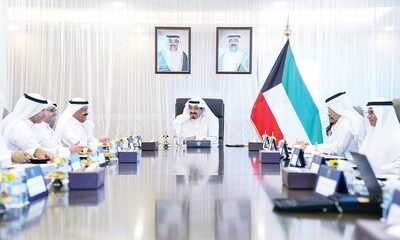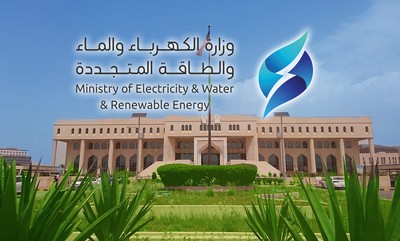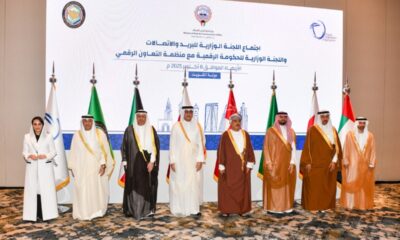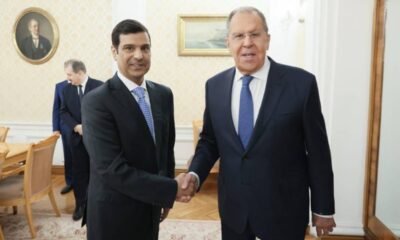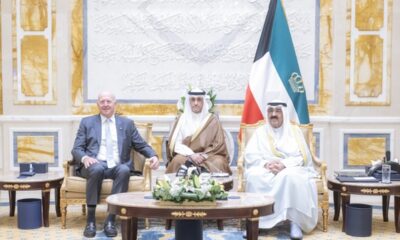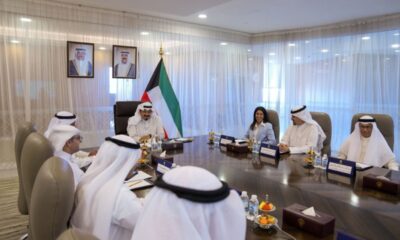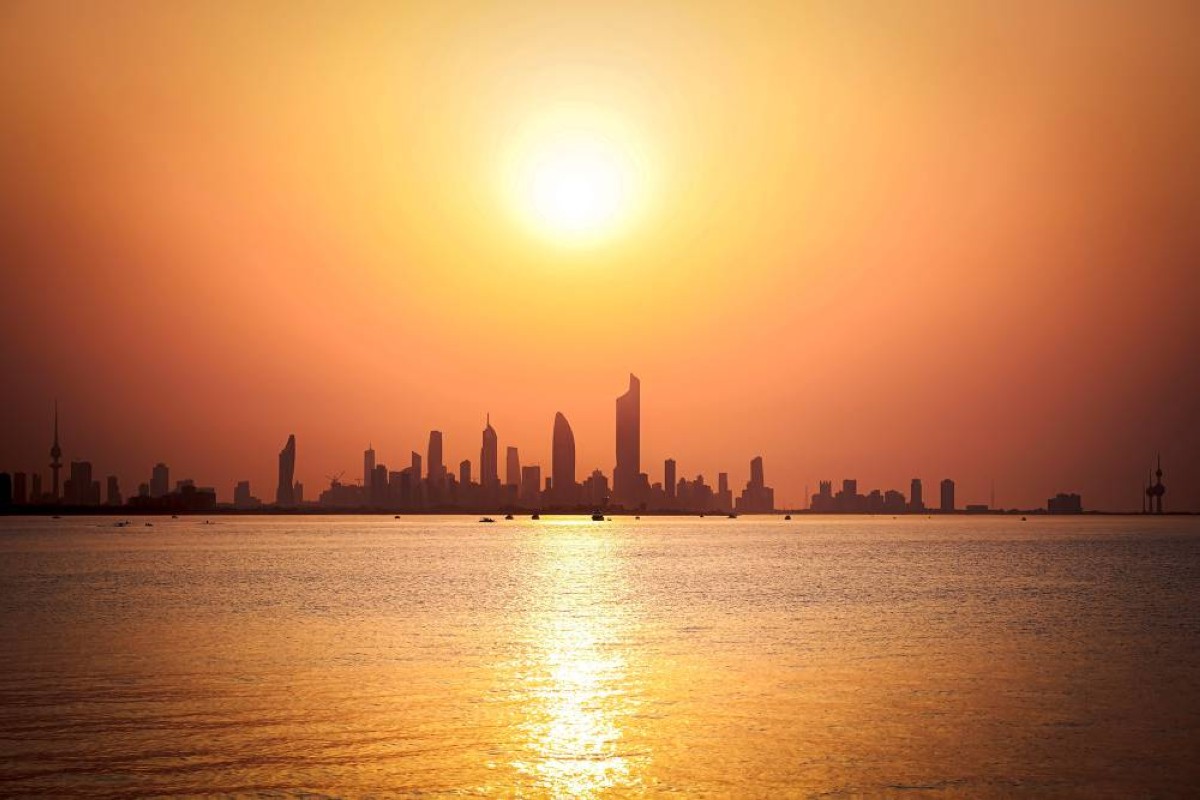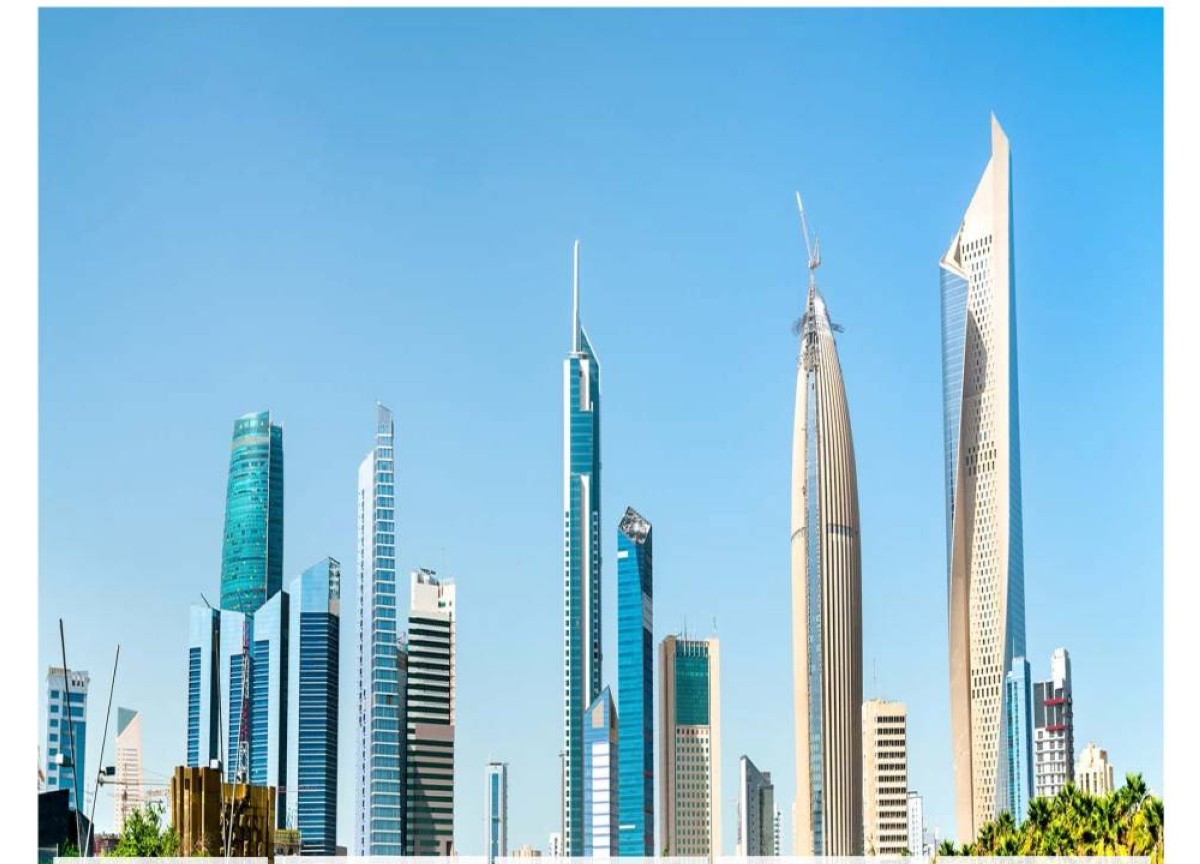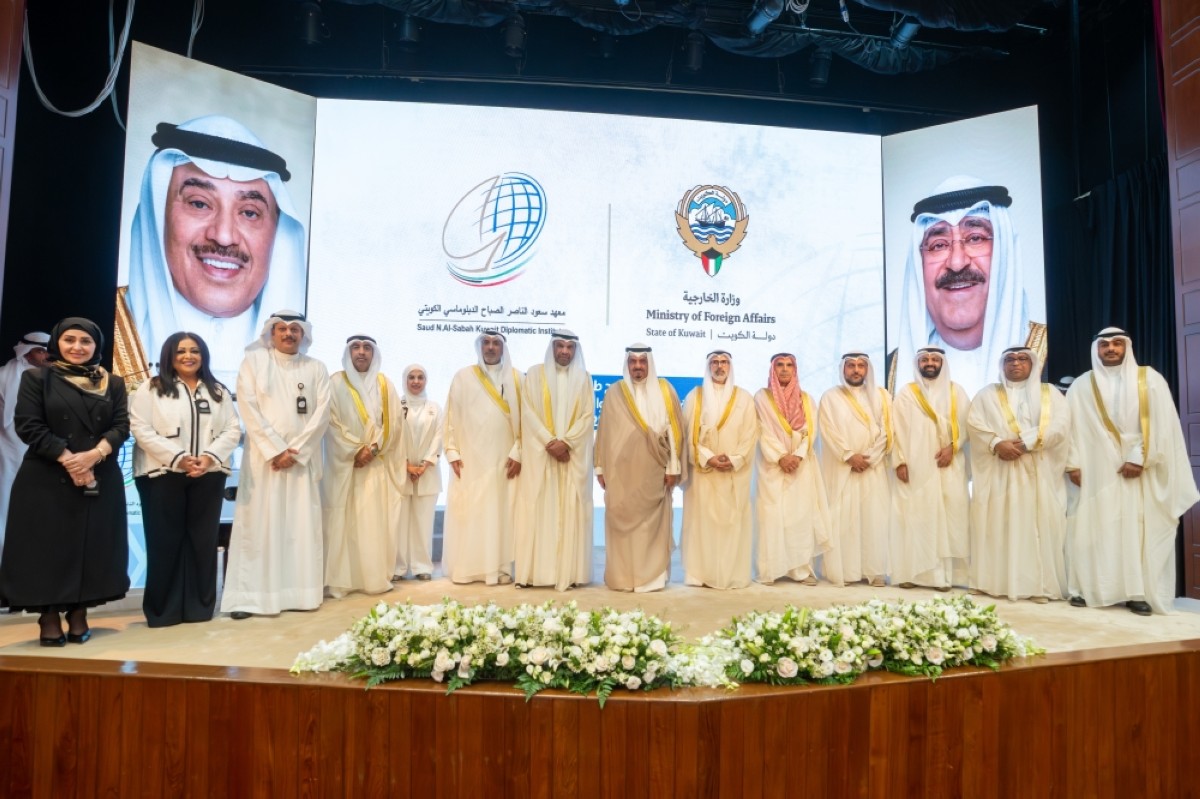KUWAIT: Spain has long been one of the most beloved destinations for Kuwaiti travelers. Known for its rich history, vibrant culture, world-class cuisine and welcoming atmosphere, Spain offers a unique blend of tradition and modernity that continues to attract visitors from around the world. With Spain celebrating its National Day, Ambassador of Spain to Kuwait Manuel Hernández Gamallo shared insights with Kuwait Times on the enduring friendship between the two countries.
Kuwait Times: Spain and Kuwait have enjoyed long-standing ties, how would you describe the nature of this relationship today?
Ambassador Gamallo: The relationship between Spain and Kuwait has always been excellent. We established diplomatic ties shortly after Kuwait’s independence, and our embassy opened here in 1964; last year marked the anniversary. Since then, our bilateral relations have grown steadily.
Spain has long enjoyed close relations with the Arab world due to deep historical, cultural and geographical ties. This connection transcends politics; there is a national consensus and a genuine sense of affinity toward the Arab world. Specifically with Kuwait, people-to-people relations are particularly strong, with many Kuwaitis choosing Spain as a preferred travel destination. In fact, Kuwaitis were among the first to popularize destinations such as Marbella. The friendship between our royal families also adds great value to our bilateral ties.
KT: What are the main areas of cooperation between the two countries?
Ambassador Gamallo: Politically, Spain and Kuwait share similar views on the importance of regional stability. We see Kuwait as a key factor of moderation and peace in the region and deeply appreciate its humanitarian contributions in Gaza, Africa and beyond. On the multilateral level, our cooperation extends through the United Nations and the EU–GCC framework.
Economically, our partnership is expanding, with around ten major Spanish companies currently operating in Kuwait, along with several smaller firms. The big ones are in strategic sectors such as energy, renewables, communications and infrastructure, among the key areas of involvement.
One notable example is Tecnicas Reunidas, a leading Spanish engineering and construction company that built the Al-Zour Refinery, the second-largest refinery in the world constructed as a single project. The company has been operating in Kuwait since 2015 and officially completed the refinery in April 2024. It’s a huge project implemented by a company fully committed to Kuwait. They wish to continue here and work in new projects.
Spanish firms are also contributing to other major infrastructure initiatives, including Kuwait International Airport’s Terminal 2, as well as in highways, construction and renewable energy projects, such as those in the Shagaya Renewable Energy Park.
Nonetheless, well-known Spanish retail brands also maintain a presence in Kuwait through local franchises.
Last May we held a Joint Economic Commission in Kuwait, attended by Spain’s Vice Minister for Trade, and as a result several memorandums of understanding (MoUs) are currently under discussion on industrial exports development, industrial cooperation and standardization cooperation. There are other MoUs in the pipeline: on cooperation between the Spanish High Council for Scientific Research and Kuwait University, and on sports cooperation.
Spanish companies can bring significant expertise in the field of food security. Many of these companies already have experience in the Gulf region, such as in Qatar and Emirates, and are keen to invest and expand their activities in Kuwait in the near future.
Other strategic sectors include shipbuilding – the company Navantia is eager to work in Kuwait, leveraging its experience with the Saudi defense ministry – as well as infrastructure and construction, including highways and urban development projects, like the magnificent highway in Jamal Abdul Nasser Street, in Kuwait city, built by the Spanish company OHLA.
These initiatives align with Kuwait’s Vision 2035, and Spanish firms are eager to contribute. We should take into account that construction and infrastructure have been two major drivers of Spain’s economic growth over the last two decades. Overall, Spanish companies are ready and enthusiastic to support Kuwait’s development across multiple strategic areas.
KT: What about cooperation in the area of food security?
Ambassador Gamallo: This is a highly promising area. Spanish companies specializing in agri-food technology and smart farming are eager to partner with Kuwait. Spain has regions with dry and very hot climates similar to Kuwait’s, which has led us to develop advanced irrigation, hydroponic systems, greenhouse innovation and solar-powered agricultural solutions. These innovations could significantly contribute to Kuwait’s food security strategy. Discussions should be ongoing in a near future.
KT: What can Spain offer to Kuwaiti investors?
Ambassador Gamallo: Spain serves as a gateway to a Spanish-speaking world of over 500 million people. Investing in Spain opens access not only to the European market but also, at a later stage, to Latin America. We offer excellent infrastructure, tax incentives and a highly skilled workforce.
In a context of economic challenges, Spain has demonstrated resilience during the last years, remaining one of the strongest performers in the European Union. Today, the Spanish economy is growing, making it an increasingly appealing destination for Kuwaiti businessmen looking to invest or establish a presence in Europe and beyond.
KT: What is the current trade volume between Spain and Kuwait?
Ambassador Gamallo: Trade between our two countries amounts to almost one billion euros annually, if we add both Spanish and Kuwaiti exports. At present, Spain is importing more from Kuwait than it exports, primarily hydrocarbons. Meanwhile, Spain exports machinery, technology, luxury goods. Also some materials connected to oil processing and large-scale construction projects, such as the ones related to Al-Zour refinery.
KT: Are there any upcoming official visits between Spain and Kuwait?
Ambassador Gamallo: We are preparing for the next round of political consultations, which are expected to take place either later this year or early next year in Madrid. The last round was held in Kuwait in July 2024. These political consultations serve as regular high-level discussions between senior officials from both foreign ministries, providing an opportunity to review the overall state of bilateral relations and explore new areas of cooperation. We are also discussing the possibilities for other high-level visits, though nothing has been confirmed yet.
In addition, Spain and Kuwait recently participated in the GCC–EU meeting, during which representatives from both countries held productive bilateral discussions, reaffirming their commitment to strengthening ties across political and economic fronts.
KT: Which Spanish destinations would you recommend for Kuwaiti tourists to explore?
Ambassador Gamallo: Spain is a vast and diverse country, offering countless cultural and natural attractions. I would highly recommend Andalusian cities like Granada, Córdoba and Seville, where visitors can explore some of our shared Arab-Andalusian heritage.
Spain is much more than its famous beaches and sunny climate. Nature lovers can explore national parks, wildlife reserves, mountains and rivers, while cultural enthusiasts can follow unique routes like the Road of Don Quixote, inspired by Cervantes’ iconic novel and dotted with historic windmills. The country is also home to a wealth of castles, many of which were transformed into hotels known as “Paradores Nacionales”. Established in the early 20th century, these hotels preserve the historical and architectural integrity of centuries-old castles, offering visitors a chance to stay in a piece of history while traveling across Spain.
For those interested in gastronomy, Spain offers regional culinary tours from fresh seafood in the north to distinctive dishes in the south. Archaeology enthusiasts can explore sites spanning prehistoric, Roman, Greek, Arabic, Visigothic, and medieval periods, reflecting the diverse civilizations that have shaped the Iberian Peninsula.
KT: How many Kuwaiti tourists visited Spain last year?
Ambassador Gamallo: Around 47,000 Kuwaiti visitors traveled to Spain last year. This year, it reached nearly 50,000 and is still going.
KT: Many Kuwaitis pursue education abroad. Are there specific programs for Kuwaiti students to study in Spain?
Ambassador Gamallo: Spain has 96 universities, private and public. Many of them offer bachelor’s and master’s programs in English. We encourage more Kuwaiti students to pursue their studies in Spain. In 2023, around 89 Kuwaiti students were enrolled in Spanish universities. Currently, 45 Spanish universities are officially recognized by Kuwait’s Ministry of Education, particularly in scientific and medical fields.
KT: Are there plans to increase direct flights between the two countries?
Ambassador Gamallo: Spain and Kuwait have received positive news with the resumption of direct flights between Kuwait and Madrid, which will operate again in October after more than a year’s interruption. The new route will complement the existing direct connection between Kuwait and Barcelona, as well as the seasonal service to Málaga. This is a significant step forward in enhancing travel and business ties between the two countries. I hope Kuwait Airways will introduce attractive tourism packages for Kuwaiti travelers, including sports-related trips to attend La Liga football matches and expanded connections to Latin America through Spain’s extensive air network.
KT: How are visa procedures for Kuwaiti citizens?
Ambassador Gamallo: Since 2023, Kuwaiti citizens enjoy the long-term, five-year Schengen visa system, expanded to the Gulf citizens. This is a very positive development. Processing times are fast, no more than two days, although securing an appointment can be challenging during peak travel seasons. My advice is always to apply early.
Regarding, waiver for Kuwaiti citizens, that decision lies with the European Union as a whole. Some member states have expressed strong support to take a step further, and we hope to see progress in the near future.
KT: How is the Embassy fostering cultural exchange between the Spanish and Kuwaiti people?
Ambassador Gamallo: We are currently preparing a concert by a renowned Spanish chamber orchestra in early November. The performance will feature classical Spanish music, offering the Kuwaiti audience a broader perspective of Spain’s rich cultural heritage.
KT: What is your message to the people and leadership of Kuwait?
Ambassador Gamallo: Spain’s National Day is celebrated on October 12, marking the day in 1492 when Christopher Columbus reached the Americas. It symbolizes Spain’s unity and its cultural contribution to global history. On this day, we celebrate not only Spain but also the broader Spanish-speaking world, united by a shared language and cultural heritage. On the occasion of Spain’s National Day, I extend my warmest greetings to His Highness the Amir, the government and the people of Kuwait. Spain and Kuwait share a deep bond of friendship and mutual respect and we look forward to further strengthening our relationship in the years ahead.


 Politics21 hours ago
Politics21 hours ago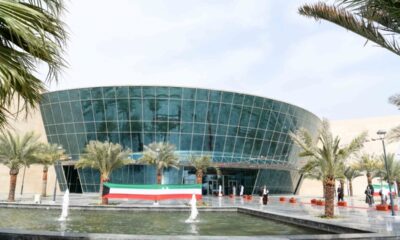
 Latest News20 hours ago
Latest News20 hours ago
 Politics18 hours ago
Politics18 hours ago
 Business21 hours ago
Business21 hours ago
 Politics20 hours ago
Politics20 hours ago
 Latest News7 hours ago
Latest News7 hours ago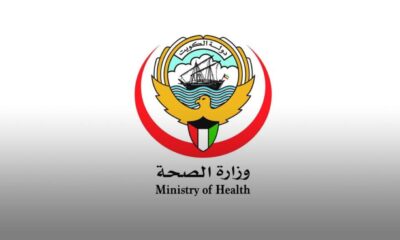
 Latest News19 hours ago
Latest News19 hours ago
 Latest News21 hours ago
Latest News21 hours ago
